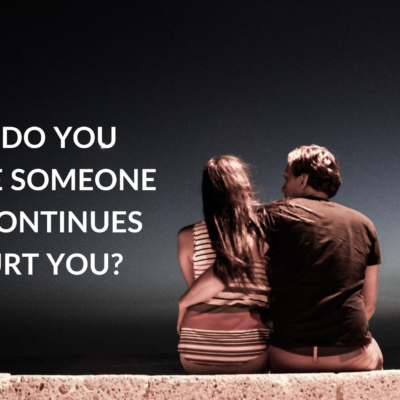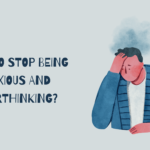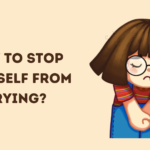How do You Forgive Someone who Continues to Hurt You: Forgiveness is often easier said than done, especially when the person who hurt you keeps repeating their actions. Holding onto resentment can feel like self-protection, but in the long run, it weighs down your heart and mind. Forgiveness doesn’t mean excusing bad behavior or allowing yourself to be mistreated. Instead, it’s a conscious decision to release the anger and resentment for your own well-being.
This article explores practical ways to forgive someone who continues to hurt you while protecting your emotional health and boundaries.
Also Read:
- How to Fully Get Over Someone?
- Signs Your Soulmate Will Show Up Really Soon.
- Ideas for Dealing with a Husband with Anger Issues.
Understanding Forgiveness
Forgiveness is not about condoning harmful actions or forgetting the pain caused. Instead, it’s about freeing yourself from the emotional grip of the offense. When you forgive, you’re choosing to let go of bitterness so you can focus on healing and growth.
- What forgiveness is: A process of releasing anger and resentment.
- What forgiveness isn’t: It’s not reconciliation unless the other person shows genuine remorse. It’s not a sign of weakness but a reflection of strength.
How do You Forgive Someone who Continues to Hurt You?
1. Acknowledge Your Pain
Before forgiving, it’s essential to recognize the hurt caused by the other person. Suppressing your feelings can make it harder to let go of resentment.
- Identify your emotions: Are you feeling anger, sadness, betrayal, or frustration? Name your feelings to understand their depth.
- Allow yourself to grieve: Acknowledge the pain without judgment. It’s okay to feel hurt—it validates your experience.
- Be honest about the impact: Reflect on how their actions have affected you emotionally, mentally, and physically.
2. Set Boundaries
Forgiving someone who continues to hurt you doesn’t mean you allow them to keep doing so. Healthy boundaries protect you from further harm.
- Communicate your limits: Let the person know what behavior is unacceptable.
- Be consistent: Enforce your boundaries and don’t let them be crossed.
- Prioritize self-respect: Protecting yourself is not selfish; it’s necessary for your well-being.
For example, if someone frequently uses hurtful words, you can say, “I won’t engage in conversations that involve insults. If it continues, I’ll need to step away.”
3. Understand Their Behavior
Understanding doesn’t excuse their actions, but it can help you process your feelings. Ask yourself:
- Are they struggling with their own issues? Sometimes, people hurt others because of unresolved pain in their lives.
- Are they aware of their impact? They may not fully understand how their actions affect you.
- Are they capable of change? Recognizing patterns can help you decide how to move forward.
Compassion doesn’t mean tolerating harm—it means separating the person from their behavior so you can heal.
4. Focus on Your Healing
Your forgiveness journey should center on your healing, not changing the other person.
- Practice self-care: Engage in activities that bring you peace, such as meditation, exercise, or spending time with loved ones.
- Seek support: Talk to trusted friends, family, or a therapist about your feelings.
- Journal your thoughts: Writing down your emotions can help you process them and gain clarity.
Forgiveness is not about waiting for the other person to change but about reclaiming your inner peace.
5. Choose Forgiveness for Yourself
Forgiving someone who continues to hurt you is ultimately an act of self-liberation. Holding onto anger ties you to the pain, while forgiveness sets you free.
- Release the need for revenge: Holding grudges won’t undo the hurt; it only prolongs your suffering.
- Shift your perspective: View forgiveness as a gift to yourself rather than to the other person.
- Take your time: Forgiveness is a process, not a one-time decision. It’s okay to move at your own pace.
6. Practice Empathy (If Possible)
If it feels safe and appropriate, try to view the situation from their perspective. Understanding their motivations doesn’t justify their behavior but can help you release resentment.
- Ask yourself questions: What might they be going through? Why do they act this way?
- Consider their limitations: Some people may not have the tools to behave differently.
- Balance empathy with self-care: You can be compassionate without compromising your own boundaries.
7. Forgive Without Expecting Change
One of the hardest parts of forgiving someone who continues to hurt you is accepting that they may never change. Forgiveness doesn’t depend on their actions but on your decision to let go.
- Detach from their behavior: Focus on what you can control—your response, not their actions.
- Release expectations: Let go of the hope that they will apologize or change.
- Embrace inner peace: Forgiveness is about freeing yourself, regardless of their behavior.
8. Limit or End the Relationship
Sometimes, the best way to forgive someone is from a distance. If the person’s behavior continues to harm you, it might be time to re-evaluate the relationship.
- Assess the situation: Is this person toxic or unwilling to change? Consider the impact of keeping them in your life.
- Distance yourself: Limit interactions if the relationship is causing ongoing harm.
- Cut ties if necessary: Ending the relationship may be the healthiest option for your mental and emotional health.
Letting go doesn’t mean you’re giving up—it means you’re choosing yourself.
9. Seek Professional Help
Forgiving someone who repeatedly hurts you can be a complex and emotional process. A therapist or counselor can provide guidance and support as you navigate this journey.
- Therapy: A professional can help you unpack your feelings and develop coping strategies.
- Support groups: Connecting with others who’ve experienced similar situations can provide comfort and perspective.
- Forgiveness workshops: Some organizations offer programs focused on forgiveness and healing.
10. Embrace Self-Compassion
Forgiving others often starts with forgiving yourself. Treat yourself with kindness and understanding throughout the process.
- Don’t blame yourself: It’s not your fault that someone hurt you repeatedly.
- Acknowledge your strength: Recognize the courage it takes to confront your pain and seek healing.
- Celebrate your progress: Each step you take toward forgiveness is a step toward freedom.
Final Thoughts
Forgiving someone who continues to hurt you is one of the most challenging yet rewarding things you can do for yourself. It’s not about excusing their actions or allowing the cycle to continue but about freeing yourself from the emotional burden. By setting boundaries, focusing on your healing, and choosing forgiveness on your terms, you can reclaim your peace and move forward.
Remember, forgiveness is a journey, not a destination. Be patient with yourself, and trust that every step you take brings you closer to inner peace.








